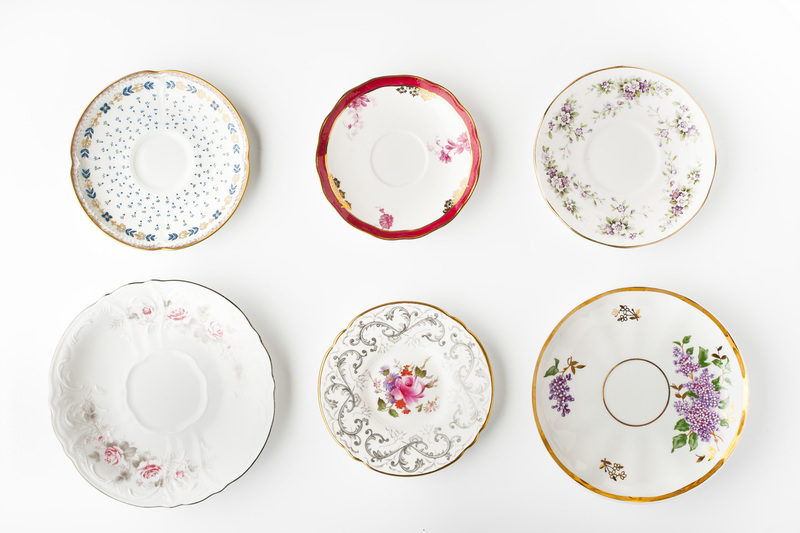The Dos and Don'ts of Recycling Pots and Pans
Are you wondering what to do with your old, unused cookware--those battered frying pans, dented saucepans, or scratched skillets accumulating in your cupboards? Recycling pots and pans is a fantastic way to keep waste out of landfills, but the process isn't as straightforward as tossing a yogurt container in the blue bin. Knowing the dos and don'ts of recycling pots and pans can make all the difference in giving your kitchenware a new life. In this comprehensive guide, we'll explore the best practices for disposing of, donating, or recycling your old cookware responsibly and efficiently.

Why Is It Important to Recycle Cookware Correctly?
Every year, millions of tons of metal kitchenware end up in landfills, contributing to environmental harm. Cookware, such as pots and pans, is often made from valuable metals like aluminum, stainless steel, and copper, all of which can be melted down and reused. Properly recycling your cookware can help conserve resources, reduce pollution, and minimize landfill waste. Furthermore, handling pots and pans disposal the right way supports sustainable practices in your community.
The Dos of Recycling Pots and Pans
1. Do Check Local Recycling Rules
Not all municipalities accept old pots and pans recycling in their curbside pickup programs. Before placing your cookware in the recycling bin, visit your local government's waste management website or call to learn what's accepted. Many recycling centers require that cookware be dropped off at specific facilities. Taking the time to verify local regulations can prevent your items from being incorrectly disposed of--or worse, causing recycling contamination.
2. Do Separate from Other Materials
Pots and pans can have plastic or wooden handles, glass lids, or non-metal parts. These materials must usually be removed before recycling. For example:
- Metal handles: These are generally acceptable.
- Plastic or silicone handles: Remove and recycle separately (if possible) or dispose of in the trash.
- Glass lids: Glass should be separated and recycled with other glass products.
*Tip: Use a screwdriver to detach handles and any other removable components before recycling.*
3. Do Consider Donating Usable Cookware
If your cookware is still in usable condition (no excessive warping, rust, or deep scratches in non-stick surfaces), consider donating it. Many charities, thrift stores, shelters, or kitchens are happy to receive clean, serviceable pots and pans. Giving your old kitchenware a second life not only helps those in need but also keeps items out of the waste stream.
4. Do Look for Scrap Metal Dealers
When recycling worn-out cookware that isn't accepted curbside, scrap metal dealers are often your best option. Scrap yards usually accept most metal cookware, including stainless steel, cast iron, copper, and aluminum. Some facilities may even pay you for the materials based on the weight and type of metal. Be sure to remove any non-metal parts before making your drop-off.
5. Do Clean Before Recycling
Residue, grease, and food particles can disrupt recycling processes. Be sure to thoroughly clean your pots and pans before donating or taking them to a recycling facility. A good wash ensures your items will be accepted and helps the recycling facility process them efficiently.
6. Do Reuse or Repurpose
Before recycling, think about whether your old cookware can be repurposed at home. Here are some creative ideas:
- Planters: Old pots make excellent rustic plant containers.
- Organizers: Use pans for holding tools, craft items, or garage supplies.
- Decor: Turn vintage cookware into quirky wall decorations or creative lamps.
*Repurposing gives sentimental items a new lease of life and reduces environmental impact.*
The Don'ts of Recycling Pots and Pans
1. Don't Assume All Cookware Can Be Recycled the Same Way
Not all pots and pans recycling is equal. Non-stick coatings (like Teflon) and enamel finishes complicate the recycling process. These surfaces can release toxic fumes or damage recycling equipment. Always check whether your cookware's material is accepted by your recycling facility and remove as much non-metal material as possible.
2. Don't Place Cookware in Curbside Recycling Without Checking
Large metal items, like pots and pans, often jam curbside recycling machines and are not suited for standard household bins. Always verify with your city or town before placing them at the curb. Improper disposal may result in your recycling bin being left uncollected--or the items ending up in the landfill anyway.
3. Don't Dump in the Trash Without Exploring Options
Tossing cookware directly into the garbage contributes to environmental waste. Metal is a finite resource: recycling saves energy and minimizes the need for raw mining. Before you toss a pot, exhaust options like donation, scrap metal yards, or even creative upcycling projects.
4. Don't Forget About Hazardous Materials
Some vintage or imported cookware contains lead, cadmium, or other hazardous metals. These can't be recycled with regular scrap metal and may pose risks to both human health and the environment. If you suspect your cookware is hazardous, consult local hazardous waste disposal programs for guidance.
5. Don't Ignore Manufacturer Take-Back Programs
Some major cookware brands offer take-back or recycling programs. Research your manufacturer--brands like Calphalon and TerraCycle have drop-off or mail-back initiatives that manage old cookware responsibly. Take advantage of these whenever possible for a worry-free recycling process.
Understanding Materials: Can All Pots and Pans Be Recycled?
Cookware is manufactured from a variety of materials. Here's a breakdown of typical cookware types and how to recycle or dispose of them:
- Aluminum: Common and highly recyclable. Remove non-metal parts. Most facilities accept aluminum pans.
- Stainless Steel: Easily recyclable; valuable to scrap yards.
- Copper: Sought after by scrap dealers; be sure to separate copper from other materials.
- Cast Iron: Exceptionally durable and recyclable. Many collectors and scrap yards value cast iron.
- Non-stick: If you remove the non-stick coating, some facilities may accept the metal underneath. Otherwise, check with your local waste authority or manufacturer.
- Ceramic or Enamel-Coated: Generally not recyclable with metals due to the different materials; may need to go with regular trash or specialized facilities.
Not sure what your cookware is made of? Look for markings on the pan (such as "aluminum" or "stainless steel") or consult the manufacturer's website.
How to Prepare Cookware for Recycling
1. Remove Non-Metal Components
Detach handles, knobs, or lids made from plastic, silicone, wood, or glass. Only pure metal should go to the metal recycler.
2. Clean Thoroughly
Wash your pans with hot, soapy water. Remove grease, burnt-on food, and any residue.
3. Sort by Metal Type
When taking items to a scrap yard or metal recycling center, sort different metals (aluminum, steel, copper, etc.) if possible. This can make processing easier and might even get you a higher payout.
What Happens to Recycled Pots and Pans?
After recycling, the metals in pots and pans can be:
- Melted down and used to create new cookware products
- Processed into automotive, construction, or industrial components
- Incorporated into everyday products ranging from appliances to electronics
Each step in the recycling process helps conserve resources and reduces the carbon footprint compared to manufacturing new products from raw materials.
Creative Ways to Upcycle Old Cookware
If recycling isn't possible, consider giving your old pots and pans new purpose through upcycling. Here are a few inventive ideas to spark your creativity:
- Garden Accents: Hang old frying pans on a fence as rustic art, or use saucepans as flowerpots.
- Bird Feeders: Turn small pans upside down and suspend them as unique bird feeders.
- Decorative Pieces: Create wall clocks, mirrors, or quirky shelves from old cookware.
- Storage Solutions: Use deep pots as organizers for tools, toys, or art supplies in the garage or garden shed.
*Upcycling keeps your kitchenware out of the landfill and gives it fresh purpose around your home!*
Frequently Asked Questions About Recycling Cookware
Can you put pots and pans in the recycling bin?
Generally, no. Most curbside programs do not accept large metal items like pots and pans. Always check with your local recycling authority for specifics.
Are non-stick pans recyclable?
It depends. Non-stick coatings make recycling challenging. Some scrap yards will accept them if the coating is removed, but most require the pan to be free of Teflon or similar materials. Always check first.
Where can I recycle old cookware near me?
Search online for local scrap metal yards, municipal recycling centers, or contact large retailers (some have recycling partnerships). You can also check with the cookware manufacturer for mail-back programs.
How do I dispose of cookware with lead or hazardous materials?
Contact your municipal hazardous waste program for instructions. Do not dispose of these items in regular trash or recycling.

The Final Word: Making Responsible Choices with Kitchenware Waste
Understanding the dos and don'ts of recycling pots and pans empowers you to make environmentally responsible choices. Before you toss those old pans in the trash, consider donation, recycling, or upcycling. Always follow local regulations and aim to maximize the useful life of your cookware through creative reuse. Your small steps help build a cleaner, greener planet--one pot at a time!
Key Takeaways -- Recycling Pots and Pans
- Do check local recycling policies before disposing of old cookware.
- Do remove non-metal parts to facilitate recycling.
- Do consider donating usable items to charities or shelters.
- Don't assume all cookware is recyclable curbside; consult your municipal guidelines.
- Don't neglect creative upcycling as a sustainable alternative.
- Don't forget to explore manufacturer recycling programs for specialty items.
By following these pans and pots recycling tips, you contribute to a healthier environment and a less wasteful world. Happy recycling!